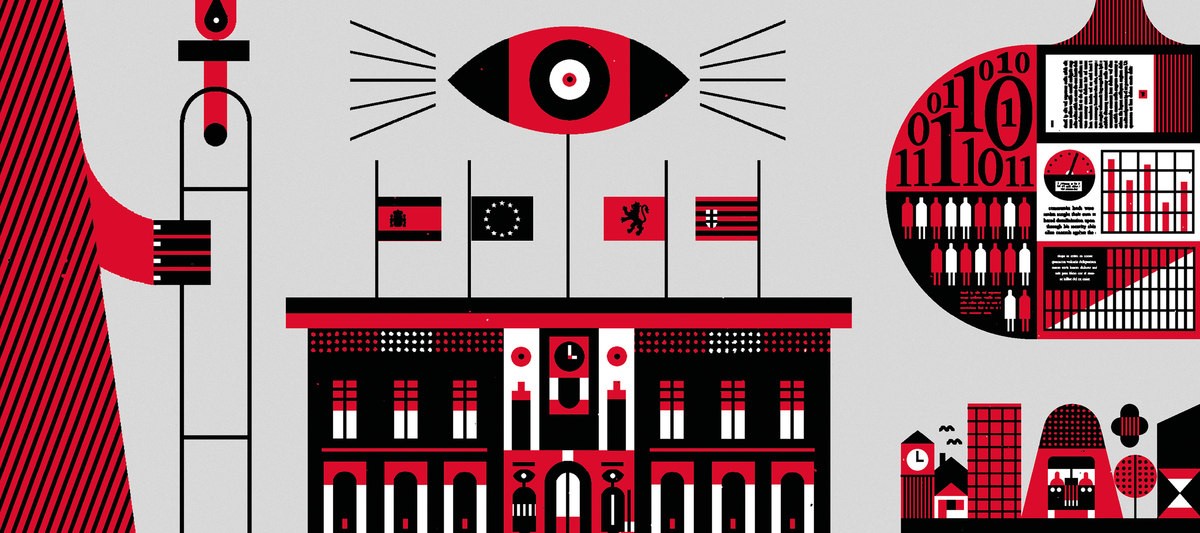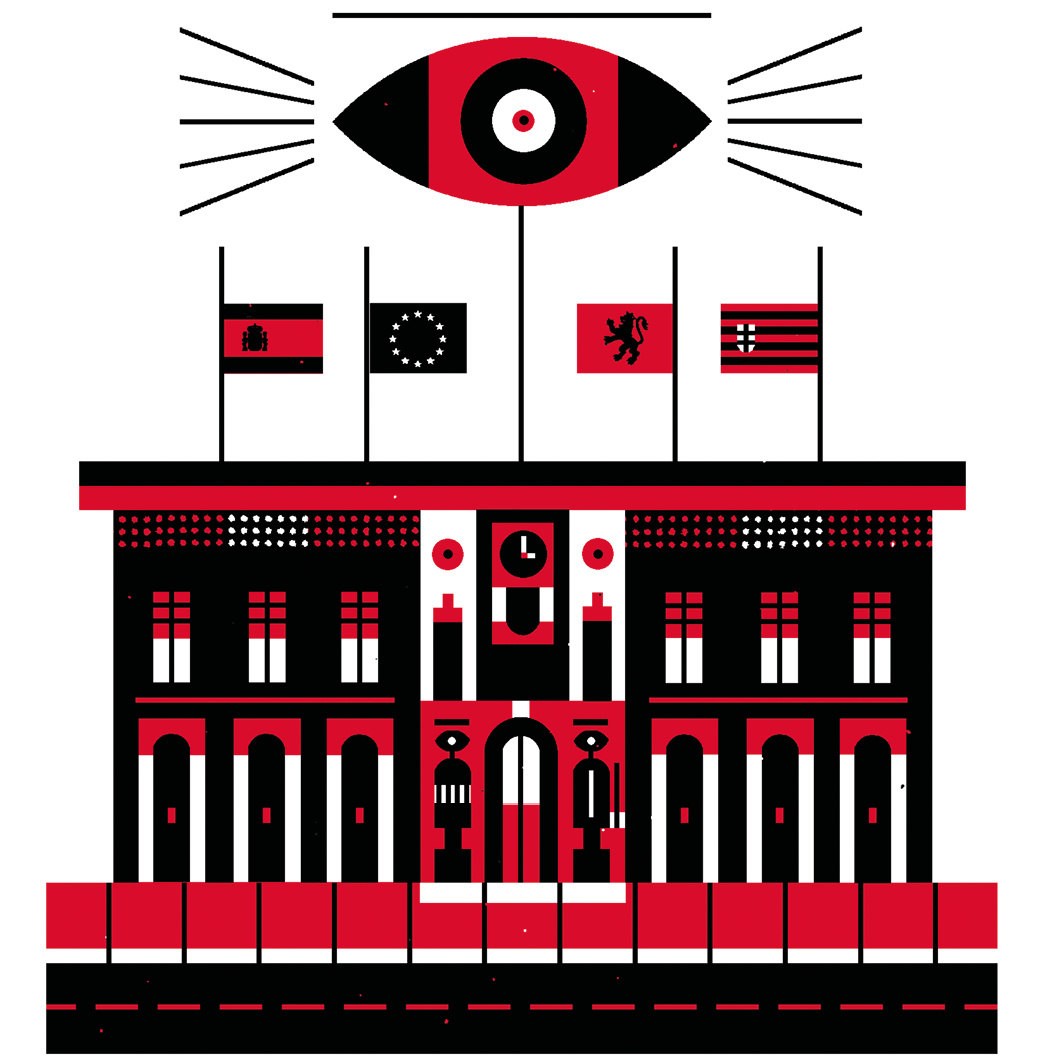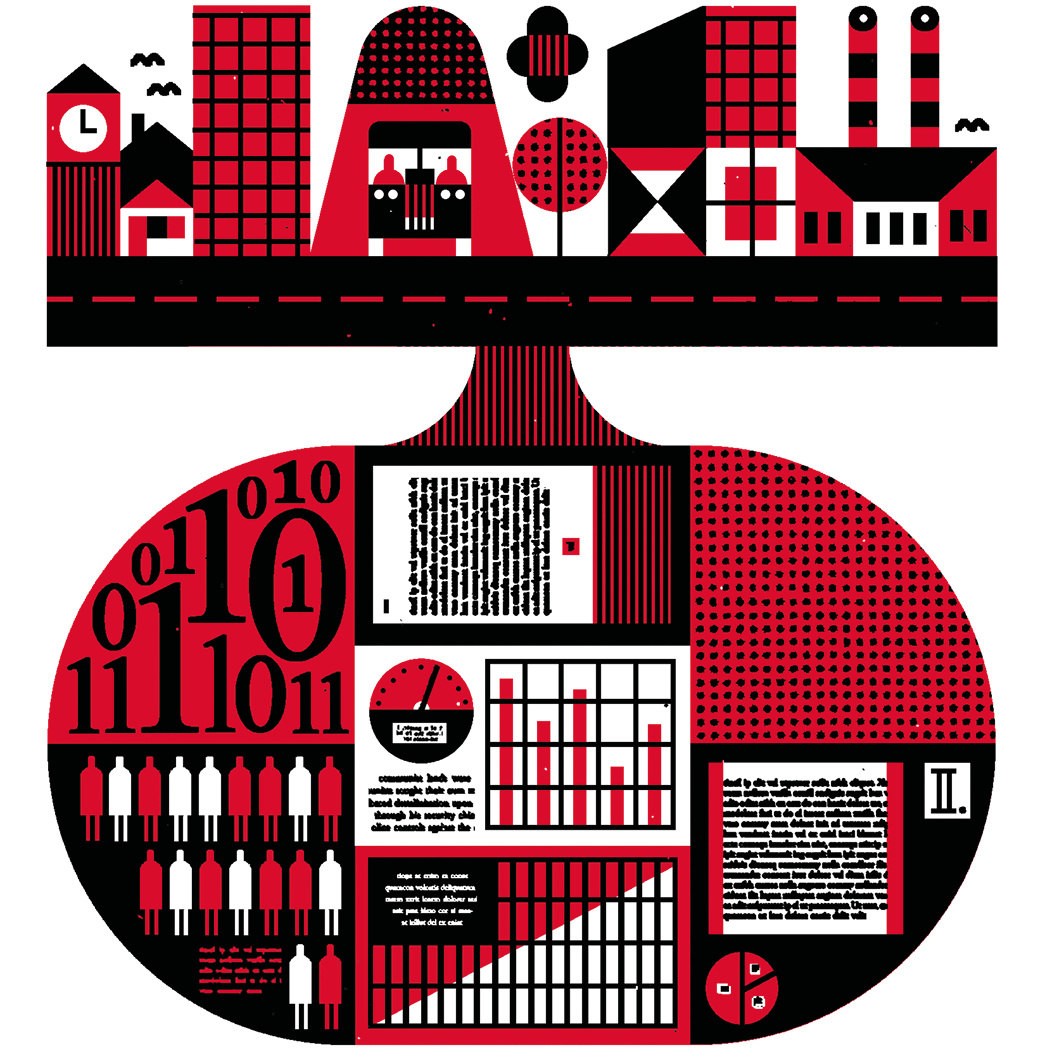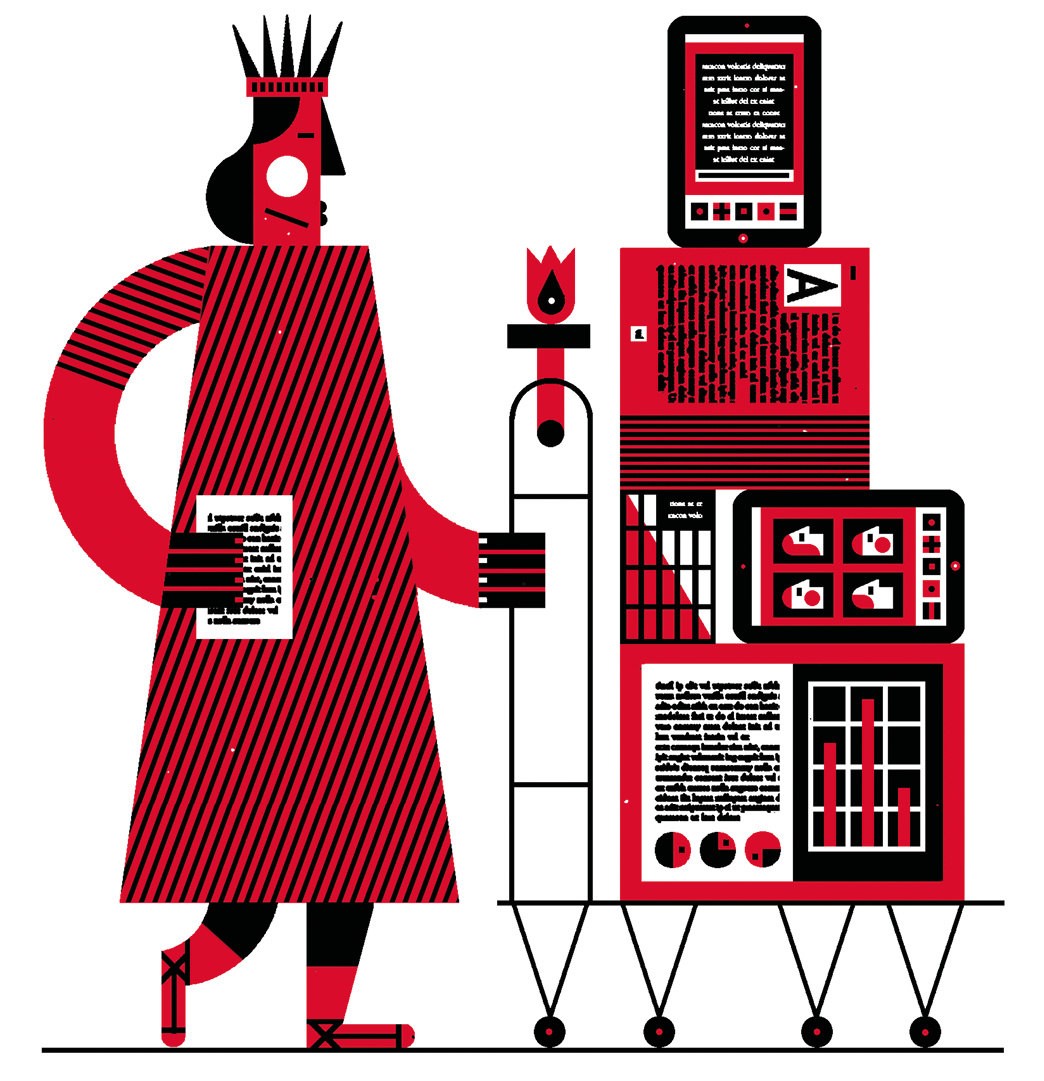
Smart Cities
Facts & Figures
Raymond Biesinger (illustration)

And the winner is …
The Spanish town of Zaragoza is regarded as most deserving of the epithet “smart city.” Some 20,000 sensors manage parking spaces, let garbage cans communicate with collection services and turn off streetlights when their light isn’t needed.

The more, the better
When we talk about smart cities, we’re really talking about big data. Virtually everyone is constantly producing data. But that’s not the decisive factor. Instead, what really counts is being able to extract and interpret meaningful findings.

German statistics portal Statista worked out that some 16 zettabytes—a colossal number with 21 zeroes—of data were generated worldwide in 2016. A zettabyte is equivalent to a trillion gigabytes. By 2025, the figure is expected to have grown to 163 zettabytes—that’s a good 5.2 million gigabytes per second.

Long-term study:
The Human Project uses big data to research not only the impact of (increasingly smart) cities on people but also the feedback mechanisms between the two. In New York City, 10,000 participants in the study have committed to providing data to The Human Project over the next 20 years.